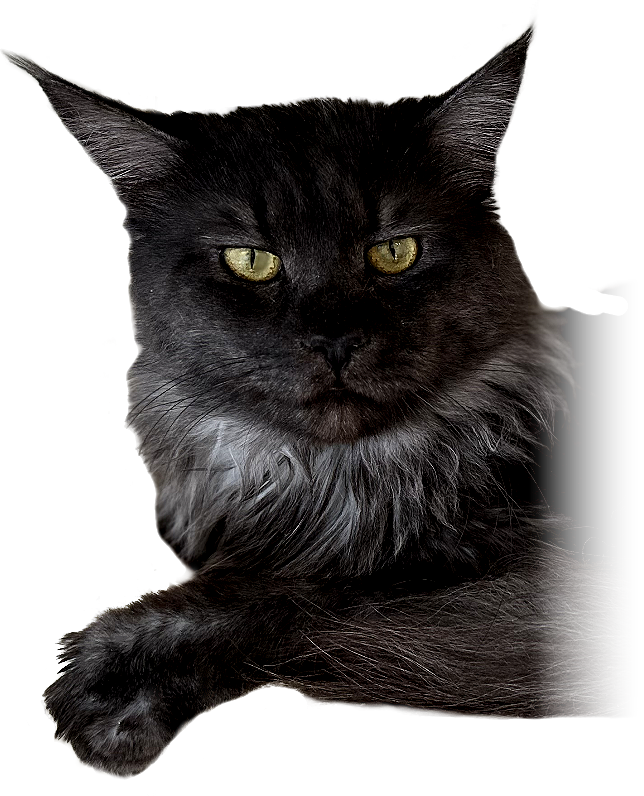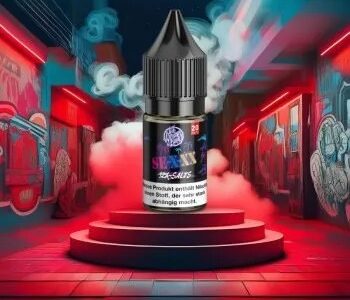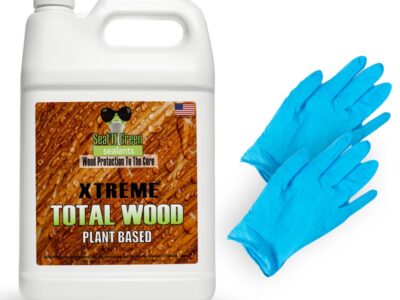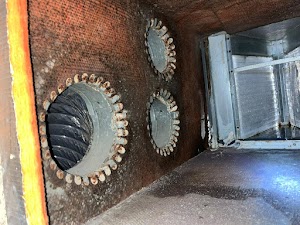If you’re in search of a feline friend that combines regal beauty with a friendly disposition, look no further than the Maine Coon. In this guide, we’ll explore the distinctive features, temperament, health considerations, and everything you need to know about bringing a Maine Coon into your home.
Distinctive Features
Size and Physical Characteristics
Maine Coons are renowned for their impressive size, making them one of the largest domestic cat breeds. Their long, tufted ears, bushy tails, and tufted paws contribute to their majestic appearance.
Unique Coat Patterns
With a variety of coat colors and patterns, Maine Coons showcase a stunning array of fur. From tabby stripes to solid colors, each cat is a unique work of art.
Temperament and Personality
Friendly and Sociable Nature
Maine Coons are often described as “gentle giants” due to their friendly and sociable demeanor. They enjoy the company of their human companions and often get along well with other pets.
Playful and Intelligent Traits
Known for their playful antics and intelligence, Maine Coons thrive in environments that stimulate their minds. Interactive toys and puzzle feeders can provide mental stimulation for these clever felines.
Health Considerations
While Maine Coons are generally healthy, there are specific health considerations to be aware of.
Common Health Issues
Maine Coons may be prone to conditions such as hip dysplasia and hypertrophic cardiomyopathy. Regular veterinary check-ups and a balanced diet can help manage these concerns.
Veterinary Care Tips
Establishing a relationship with a veterinarian experienced with Maine Coons is essential. Regular check-ups and preventive care can contribute to the overall well-being of your feline companion.
Pros and Cons of Owning a Maine Coon
Benefits
- Majestic and striking appearance
- Friendly and sociable nature
- Playful and intelligent traits
Challenges
- Size may be overwhelming for some owners
- Grooming requirements for their long fur
- Potential health concerns due to their size
Preparing Your Home for a Maine Coon
Space Requirements
Given their size, Maine Coons require ample space to move around comfortably. Ensure you have enough room for scratching posts, climbing structures, and cozy spots.
Grooming Routines
Regular grooming is essential to prevent matting and hairballs. Brush your Maine Coon’s fur at least twice a week to maintain their beautiful coat and reduce shedding.
Finding a Reputable Breeder
Research Tips
Look for breeders with positive reviews and a commitment to ethical breeding practices. Verify their credentials and inquire about the health history of their cats.
Warning Signs of a Bad Breeder
Avoid breeders who prioritize profit over the well-being of their cats. Red flags include unsanitary conditions, lack of transparency, and inadequate health records.
Cost Factors
Initial Purchase Cost
The price of a Maine Coon varies, with factors such as pedigree and coat color influencing the cost. Consider your budget and the long-term financial commitment of caring for a Maine Coon.
Ongoing Expenses
Factor in expenses such as high-quality cat food, grooming supplies, and potential veterinary bills. Proper nutrition and regular exercise contribute to a healthy and happy Maine Coon.
Adoption Options
Shelters and Rescues
Consider adopting a Maine Coon from a shelter or rescue organization. Many cats are in need of loving homes, and adoption can be a fulfilling and compassionate choice.
Adoption Process
Be prepared for a thorough adoption process, including interviews and home inspections. Shelters prioritize the well-being of their animals and strive to match them with suitable families.
Tips for First-Time Maine Coon Owners
 Introduction and Bonding
Introduction and Bonding
Allow your Maine coon for sale time to acclimate to its new home. Create a welcoming space and spend quality time bonding with your new feline friend.
Nutrition and Exercise
Provide a balanced diet suitable for large breeds, and engage your Maine Coon in regular play and exercise to keep them physically and mentally stimulated.
FAQs About Maine Coons
- Do Maine Coons get along with other pets?
- Maine Coons are known for their sociable nature and often get along well with other pets, including dogs.
- How often should I groom my Maine Coon?
- Regular grooming, at least twice a week, is recommended to prevent matting and reduce shedding.
- What is the lifespan of a Maine Coon?
- With proper care, Maine Coons typically live between 12 to 15 years.
- Are Maine Coons indoor or outdoor cats?
- While they can adapt to both indoor and outdoor environments, it’s generally safer to keep Maine Coons indoors to protect them from potential hazards.
- Do Maine Coons require a special diet?
- A balanced and high-quality cat food suitable for large breeds is recommended. Consult with your veterinarian for specific dietary requirements.
Conclusion
In conclusion, welcoming a Maine Coon into your home brings the joy of having a majestic and affectifonate companion. Understanding their unique needs, finding a reputable breeder or adopting from a shelter, and providing a loving environment will ensure a fulfilling relationship with your Maine Coon.











Comments